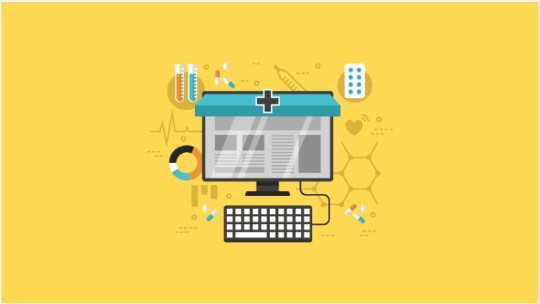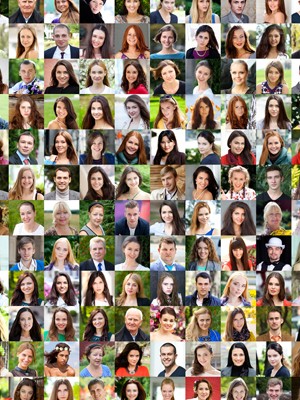
With the advancement of technology and rising power of internet, the way we interact has dramatically changed. Nowadays people communicate more in the digital space than in the physical. This change has modified our daily routines, as well as social behaviors. We communicate pro-actively on digital platforms and create our digital selves which are more publicly open than our physical selves.
In our hands
Whether we are aware of it or not, we demand and crave for ”personalization” in every way, in order to make the digital experience more easily digestible. Adds we see are personalized, as are also job searches, we follow people we like, we unfollow if we get annoyed – something that we may not do in the real world situation. It is all in our hands.
We are brave in the digital world. But we are not tolerant, especially not concerning time and time spent. We demand fast answers, fast interactions, valuable data and useful information. In other words, we want to find, and be served, the best intelligence for our purposes in this big ‘mess’ called internet.
Science is becoming digital too
And it is not only us, science is becoming digital too. The best scientific journals are online, researchers communicate through scientific platforms, e-health apps are reshaping disease management, virtual reality (VR), body sensors, cognitive computers and artificial intelligence (AI) are hot topics. Libraries have gone online and we can educate ourselves through online courses etc. Digital is no longer a ”nice to have” for us, it is our priority.
Despite the transformative effect of digitalization in our lives, the bio-pharma industry is still quite cautious about digital interactions. There is still an undeniable pattern of conservatism in the industry due to regulations, unclear guidelines, compliance issues as well as difficulty in determining return on investment (ROI). Because of the reasons mentioned, many bio-pharma companies prefer to remain not present or passive in digital channels. Others adopt an agile strategy and experiment continuously. The main challenge is to establish a ‘digital first’ strategy instead of approaching digital as an extra. Bio-pharma is an innovation based industry that puts patient in the center, also in the communication, and today’s patients prefer independency and are empowered to seek information and choose their own way of preferred communication. That is why digital should be a medium instead of an extra for pharma in the first place.
Create the win-win
The bio-pharma industry also needs to understand that in the long term digital can be a path to cost effectiveness. Traditional marketing channels are becoming out of date and inefficient, and wasting money on channels that are not valued by patients may not be smart. Therefore, the industry needs to understand which platforms their audience is on, what kind of content is considered valuable and in what ways the audience can feel supported. In other words, how bio-pharma can deliver tailored information and support the patient and relatives in a way that they want and, by that, create value for both patient and the industry itself.
Digital communication is here and will stay. That is why bio-pharma companies have to be agile, present, and eager to interact with the public. It is crucial for future success and survival to be innovative in communication and, most importantly, to be brave. As George Bernard Shaw said: ”If you cannot get rid of the skeleton in your closet, you’d best teach it to dance ...”
About author:
Aslihan is a second year master student from Karolinska Institutet within the field of Bioentrepreneurship and as a part of the program she is doing her internship at Bristol-Myers Squibb in Sweden. Aslihan holds a Bachelor’s degree in Biomedical Engineering from Yeditepe University in Istanbul, Turkey and she also has several years of work experience in the medical devices industry. Aslihan describes herself as a restless and creative mind searching for value creation through design thinking and she pursues a future career in Life Science / Pharma Industry within projects that will make significant changes in people’s lives.

Horizontbloggen är ett debattforum för aktuella läkemedelsrelaterade ämnen med målet att vara en aktiv del i läkemedelsdebatten och att samspela med olika intressenter för att bidra till ökad kunskap och ge underlag för faktabaserade förslag och beslut. Bloggen riktar sig främst till politiker, myndigheter, tjänstemän, patientföreträdare och andra beslutsfattare inom svensk hälso- och sjukvård, men även patienter och anhöriga.
Fabian Madelon is Business Control Function manager with responsibility for Nordics at Bristol Myers Squibb. He is married and father of a 10-year-old son and an 8-year-old-daughter. He has a rare form of cancer that was discovered in 2010 and which triggered major operations on three different organs over the past eight years.
He decided to be on a one-year leave of absence in 2018 with two objectives in mind. The first one is to better understand his disease and find ways to fight it. The second is to use his experience at the hospital to help other patients go through the trauma of major operations.
Kajsa Asp Jonson är legitimerad dietist, journalist och författare. Sedan tio år tillbaka driver hon eget företag med fokus på kommunikation och inspiration kring hälsa, goda matvanor och prevention.
Kajsa vill inspirera till ett skönare liv utan pekpinnar – en hållbar livsstil som dessutom gör att vi på kan leva friskare och längre, njuta av vår tid på jorden och samtidigt få de gemensamma resurserna att räcka till mer.
För mer information, se www.kajsaasp.se